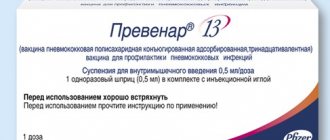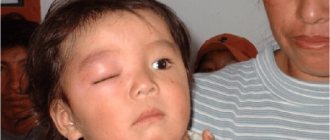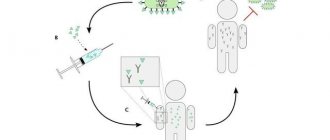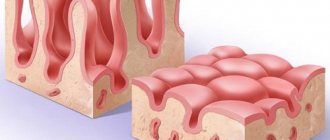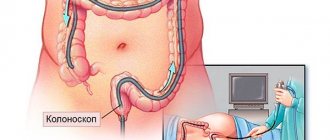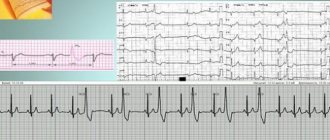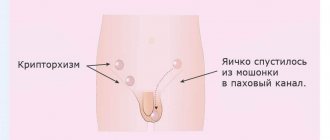Vaccinations work in conjunction with the immune system. Normally, the immune system guards the body and protects us from external influences - infections. If for some reason a microbe penetrates the skin or mucous membranes into the body, it is met by the immune system. Meets and deals with it.
- Why is vaccination necessary? Vaccine – a teaching aid for immunity
- Why can't everyone get vaccinated?
- How can we help you? Examination and treatment of post-vaccination complications
- Complications after vaccinations. Complications in children after vaccinations
- To vaccinate or not to vaccinate? How to make a decision?
Why is vaccination necessary? Vaccine – a teaching aid for immunity
If the immune system is already well acquainted with the causative agent of the infection - antibodies have been developed to it, then the fight against the microbe occurs quickly and successfully, and the disease passes in a mild form or does not exist at all. And if the immune system is not familiar with the pathogen, then it needs quite a long time to develop antibodies - factors that, like a key to a lock, will approach this microbe and kill it.
Vaccination is a training tool for immunity. Each microbe has a unique protein, the characteristic structure of which is used by the immune system to identify it. The vaccine (inoculation) contains the same proteins that make up the microbe. The composition of the vaccine, as a rule, includes weakened or killed microbes or viruses that are not able to cause disease in a healthy person. When we administer a vaccine and “show” it to the immune system, the immune system learns to fight the disease like a textbook. It's all simple, logical and works well.
Why can't everyone get vaccinated?
If the immune system is weakened and a vaccine is administered, complications are possible:
- The immune system will not be able to adequately respond to the vaccine - and the vaccine will work poorly or not work at all;
- If the immune system is fighting some kind of infection at this time, we will divert its forces to fight the vaccine, which can cause illness, allergies, or serious complications ;
- If a weakened but living microbe is introduced when the immune system is depleted, the vaccine can cause disease . Such complications are possible, for example, when a child is vaccinated with BCG or given a live polio vaccine.
How can we help you? Examination before vaccinations and treatment of post-vaccination complications
- Before vaccination, we recommend that you: Take a blood test to predict your individual reaction to vaccination . This analysis allows you to accurately determine allergies to vaccine components.
- In case of weakened immunity, frequent exacerbations of infections or the presence of temporary contraindications to vaccination, we recommend conducting an immune examination - an immunogram. It will show disturbances in the functioning of the immune system.
- Be examined by a neurologist-immunologist with test results. If there are disorders of the central nervous system, allergies, other chronic diseases or an imbalance of the immune system, the doctor will recommend treatment and prepare for vaccination. He will select the vaccines that are right for you, the risk of complications will be minimized.
The main cost items in preparation for vaccination are a blood test for vaccine tolerance (depending on the number of vaccines) and an immunogram. We have one of the most advantageous offers on immunograms, you can view it here. The cost of a consultation with a neurologist-immunologist can be found in the price list.
We treat post-vaccination complications . The most common complications we encounter after vaccinations arise from the nervous system and immune system: encephalitis, panencephalitis, optic neuritis, facial paralysis, exacerbation of multiple sclerosis, allergic reactions, etc. Our clinic employs highly qualified specialists who successfully such complications are treated.
The risk of complications after vaccination can be minimized if you are examined in advance by a neurologist-immunologist.
What are the consequences of coronavirus for the lungs?
The most common symptom of coronavirus, as well as a complaint after illness, is shortness of breath. COVID-19 is not a simple respiratory infection. Coronavirus causes primary primary damage to the respiratory organs. That is, the main effect of the disease is on the lungs, but besides this, the infection affects almost all organs and systems to varying degrees.
The disease is more complex and longer, even compared to the severe form of influenza. If the flu is characterized by several days of high temperature, then several days of slightly elevated temperature, and then there is a period of convalescence and complete recovery, then coronavirus is treated within several weeks, and the course of the disease is often unpredictable. It may take months of therapy to restore the lungs after the disease.
The most common complication after COVID-19 is a pronounced change in the lungs, even if the virus is no longer in the body and the patient has recovered. This consequence of coronavirus is detected using tomography. In such cases, patients need supplemental oxygen, which they receive at rehabilitation centers or rent an oxygen concentrator and recover at home.
What happens when there is a complication on the lungs after Covid? Scars form on healthy tissue, which prevent the supply of the required amount of oxygen and contribute to the appearance of excess carbon dioxide. Depending on the degree of damage to the lungs, a person experiences difficulty breathing. Restoring the function of the respiratory system is a primary task, since fibrotic changes can cause the development of thrombosis and other pathologies.
If the affected area is large, the doctor selects a suitable drug treatment program, prescribes breathing exercises to stimulate lung function and accelerate tissue regeneration, supporting the functioning of organs with additional oxygen if necessary.
Complications after vaccinations. Complications in children after vaccinations
Any vaccine is unsafe, but it should be noted that vaccinations themselves rarely cause complications. Adverse reactions to vaccinations are relatively common; they are divided into local and general; these are undesirable reactions of the body to the administered vaccine. Local reactions include redness, soreness and induration at the injection site, and general reactions include fever and general malaise. In general, adverse reactions are not considered a pathology; they are a normal response of the body to the introduction of a foreign antigen, and in most cases they reflect the process of developing immunity.
Adverse reactions should be distinguished from complications after vaccinations. Post-vaccination complications are extremely rare; they are a severe reaction of the body to the vaccine. Complications most often occur against the background of a weakened immune system or in cases where the rules and instructions for vaccination were violated, for example, the technique of administering the vaccine, violation of its storage conditions, or administration of the vaccine despite the presence of contraindications.
Complications after hepatitis vaccination
Vaccines against hepatitis B are recognized as one of the safest. But in the descriptions of the drugs there are references to complications that occur rarely or extremely rarely: increased body temperature (above 38.8 ° C), general reactions (malaise, fatigue, headache, nausea, vomiting, dizziness, myalgia, arthritis), skin rash and transient increase in transaminase activity, cases of polyneuropathy, optic neuritis, facial paralysis, exacerbation of multiple sclerosis, Guillain-Barre syndrome.
Complications after DTP vaccination
DTP is a combination vaccine against whooping cough, diphtheria and tetanus. This vaccine is considered the most dangerous. It has a very high risk of complications and increased allergenicity.
The most reactogenic component of the DPT vaccine is considered to be inactivated pertussis bacillus, since its antigens tend to infect brain tissue both directly and through an immune response. This happens because these same antigens have some similarities with meningeal antigens.
The ADSM vaccine, ADS(M) is essentially the same vaccine, but it does not contain pertussis. Therefore, as a rule, it does not cause adverse reactions.
In addition to the active ingredients, DTP (or other vaccines against whooping cough, diphtheria and tetanus) may contain preservatives and other additional substances, such as merthiolate, aluminum hydroxide, formaldehyde or mercury-based preservatives, which pose a danger to the child’s weakened body. It is these substances that usually cause a local reaction : redness, thickening or soreness at the injection site.
General reactions to DTP vaccination include an increase in body temperature to 38⁰С-39⁰С.
Severe reactions to DPT : a child's prolonged, piercing crying (constant persistent crying) - unusual (even squealing) crying of a child, usually continuously lasting up to 3 or more hours, temperature above 40⁰C, vomiting, convulsions, post-vaccination encephalitis.
Complications : there are no official statistics on complications after the administration of the DTP vaccine, but in publicly available sources you can find information about severe damage to the central nervous system (encephalitis, epilepsy, paralysis, hydrocephalus, autism, developmental delay), the immune system (severe allergic reactions) and other organs ( pyelonephritis, leukemia).
All reactions occur more often after repeated injections of the vaccine.
Complications after polio vaccination
Two drugs are used for vaccination against polio: oral live polio vaccine (OPV), which contains weakened live polio viruses and is dropped into the mouth, and inactivated polio vaccine (IPV), which contains killed polio viruses and is administered by injection subcutaneously or intramuscularly.
The only serious but extremely rare complication after OPV is vaccine-associated polio. Basically, this complication occurs against the background of immunodeficiency or congenital malformations of the gastrointestinal tract.
Vaccine reactions are rare after IPV administration. Most often they are expressed in a short-term increase in body temperature and a skin reaction at the injection site.
Complications after vaccination against measles, mumps and rubella (MMR, MMR)
After MMR vaccination, mild to moderate general and local reactions are possible. Severe reactions and complications are observed very rarely, these include: pneumonia, panencephalitis, one-sided deafness, thrombocytopenia (single cases have been reported).
In some cases, vaccine-associated diseases (measles, mumps) occur due to the use of live vaccines.
Complications after BCG vaccination (tuberculosis)
Post-vaccination complications after vaccination against tuberculosis can be divided into 4 groups:
- Local reactions: cold abscess, ulcer, regional lymphadenitis, keloid scar.
- Osteitis, clinically occurring as bone tuberculosis, lymphadenitis of two or more localizations, isolated complications in the form of allergic vasculitis, lupus erythematosus.
- Generalized BCG infection occurs extremely rarely, in isolated cases. Mostly occurs in children with T-cell immunodeficiency.
- Post-BCG syndrome – manifestations of an allergic disease: anaphylactic shock, erythema nodosum, rashes, secondary infection.
Rare side effects
After administration of the vaccine, the patient should be asked to stay at the vaccination site for 15–30 minutes to ensure timely medical care in case of immediate reactions. If unexpected side effects or other health problems occur, such as side effects lasting more than three days, vaccinated individuals should notify their local health care providers. Rare reported side effects of COVID-19 vaccination include severe allergic reactions such as anaphylaxis; however, these reactions occur extremely rarely.
National authorities and international organizations, including WHO, are closely monitoring any adverse events associated with the use of the COVID-19 vaccine.


